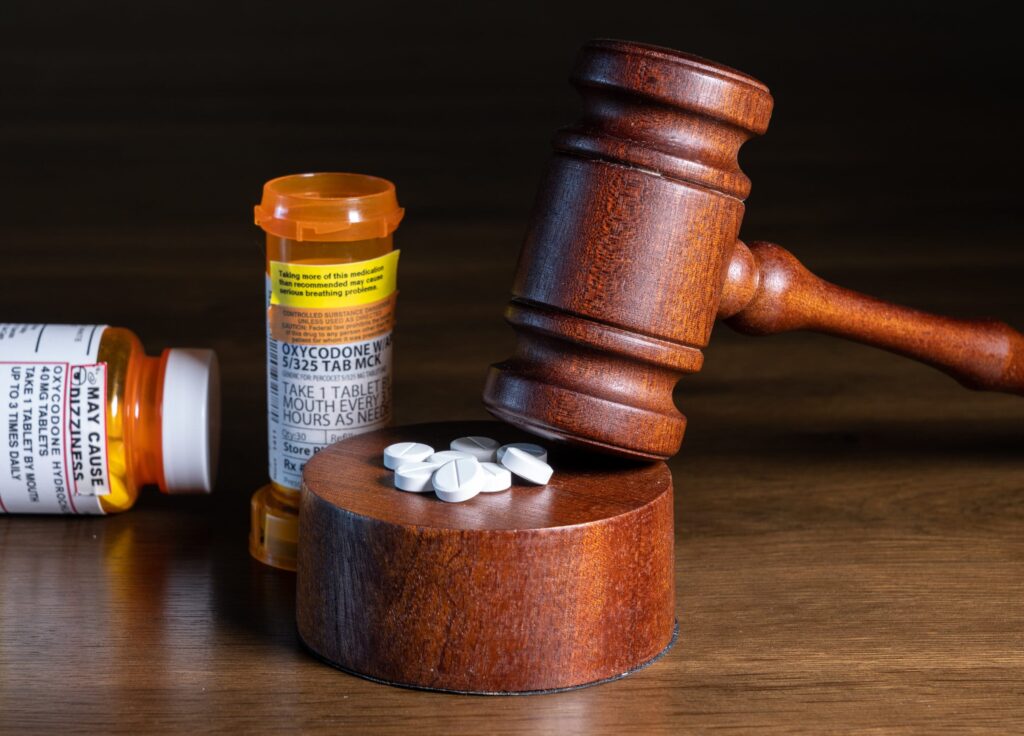Beat Your Denver DUI Charges with Effective Defense Strategies
July 17, 2024

Posted by: Jacob E. Martinez
Category: Drug Crimes | Felonies | Prescription Drug Crimes
Many people in Colorado are given prescription medication to treat a variety of conditions. When you have a valid prescription for a medication, then that means you have the legal right to possess it in the state.
However, while you have the right to keep certain medications on your person as you go about your day, having a valid prescription doesn’t make it legal to share your medications with anyone else – even a friend or family member you’re simply trying to help.
So, you can’t share your Xanax with someone you know who may be going through a rough patch just to be nice, because, in the eyes of the law, you’re breaking it. And you can suffer the consequences for that breach.
Here is what you need to know about sharing your prescriptions in Colorado and the type of legal trouble it can create.
While Colorado has made some changes to its drug laws over the years, it is still illegal to share a medication of any kind obtained through a prescription with another person. Even giving someone a single pill is breaking the law and committing a crime in the state. The reason the law is so stringent is to try to cut down on the sharing of prescription opioid medications and controlled substances.
Providing someone you know with even one pill from a bottle of prescription medication is considered the crime of unlawful distribution or unlawful dispensing of a controlled substance in the state. If you are arrested and charged with this crime, you can face these types of charges depending on how much of the substance was provided and what substance it was:
Providing another person with 225 grams or more of a Schedule I or II controlled substance is a level 1 drug felony.
Providing someone with 14 grams or more of a Schedule I or II controlled substance, or seven grams of drugs that include methamphetamines, heroin, or ketamine is a Level 2 drug felony.
Providing 14 grams or less of a substance from Schedule I or II is considered a Level 3 drug felony. Also, providing four grams or more of a substance from Schedule III or IV will fall under this level of crime.
For medications that can be purchased over the counter and are on Schedule V, you may only face misdemeanor charges.
Drug schedules are a list provided by the federal government that places drugs into different schedules based on their accepted medical use and probability of addiction and abuse.
The higher the schedule, the more serious the penalty. The schedules are:
This is the schedule for drugs with the highest probability of addiction but no accepted medical use, such as hallucinogens and heroin.
These drugs have some accepted medical use but still pose a high threat for addiction and abuse. You can find drugs such as opium and morphine on this schedule.
The drugs found on this schedule have a high rate of addiction, as well, but are quite commonly used in medical treatments. Drugs such as ketamine and Suboxone are on this schedule.
The drugs on this schedule are not as highly addictive as others, but still require proper monitoring by a medical professional for use. Drugs on this schedule include Xanax, Ativan, and Valium.
The drugs on this schedule are usually available over the counter, but some do still need a prescription. Cough medications with codeine and other drugs such as Phenergan are on this schedule.
The unlawful distribution of controlled substances can be charged by prosecutors if you provide anyone else with drugs from your prescription. Your penalty will depend on the level of drug offense of which you are found guilty, which includes:
If found guilty of this level of felony, you can face up to 32 years behind bars. You may also be required to pay fines of as much as $1 million.
A level 2 drug felony can result in up to eight years in prison and fines of as much as $750,000.
You can be sentenced to up to four years in prison for this level of a drug felony and be required to pay fines of as much as $500,000.
If found guilty of a misdemeanor, you can still face up to 18 months in jail and fines of amounts up to $5,000.
About the Author:
Denver-based criminal defense and DUI attorney Jacob E. Martinez is a knowledgeable and experienced litigator with a record of success providing innovative solutions to clients facing criminal charges of any severity. Mr. Martinez has been recognized by countless legal organizations for his exemplary defense work, including Avvo, Best DWI Attorneys, Expertise, Lawyers of Distinction, The National Trial Lawyers, and others. He was also named one of the 10 Best in Client Satisfaction in Colorado by the American Institute of Criminal Law Attorneys for 2020, and is Lead Counsel rated.
Jury Trial - Not Guilty
Jury Trial - Not Guilty
Arapahoe 1st Degree Assault/Vehicular Assault
Jury Trial - Not Guilty
Denver Domestic Violence Assault Case
Jury Trial - Not Guilty
Denver D.V. Assault
Jury Trial - Not Guilty
Denver Careless Driving Resulting in Death
Jury Trial - Not Guilty
Jefferson County Felony Menacing
Jury Trial - Not Guilty
Adams County DUI
Jury Trial - Not Guilty
Jefferson County DUI
Jury Trial - Not Guilty
Jefferson County DUI
Jury Trial - Not Guilty
Jefferson Vehicular Assault/DUI
Jury Trial - Not Guilty
Jefferson County DUI
Jury Trial - Not Guilty
Boulder County DUI case
Jury Trial - Not Guilty
Arapahoe County DUI case
Jury Trial - Not Guilty
Adams County DUI case
Jury Trial - Not Guilty
Douglas County DUI case
Jury Trial - Not Guilty
Gilpin County DUI case
Dismissed
Broomfield County Probation Revocation case
Dismissal
Arapahoe County DUI case
Deferred Judgment
Arapahoe County DUI case
Deferred Judgment
Douglas County DUI case
Deferred Judgment
Larimer County DUI case
Deferred Judgment
Arapahoe County DUI Case
Deferred Judgment
Denver Felony Burglary Case
Deferred Judgment
Arapahoe County DUI case
Dismissed
Arapahoe County Protection Order Case
Dismissed
Golden Destruction of Property case
Dismissed
Jefferson County Protection Order case
Dismissed
Jefferson County Domestic Violence case
Dismissed and Sealed
Jefferson County DUI case
Dismissed
Denver Major Traffic Offense case
Dismissed and Sealed
Broomfield County Domestic Violence case
Dismissed
Summit County DUI Revocation
Dismissed
Denver DUI Revocation
Dismissed
Denver DUI Revocation
Dismissed
Denver DUI +.2 Involving Accident and Injury case
Dismissed
Denver DUI/Habitual Traffic Offender case
DISMISSAL
Denver District Aggravated Theft
Dismissed
Greenwood Village Assault case
Dismissal
Elbert County DUI
Dismissed
Arapahoe County Domestic Violence case
Dismissal
Jefferson County DUI
Dismissal
Denver Municipal Assault
Dismissed
Boulder County Domestic Violence Assault case
Dismissed
Wheat Ridge Assault case
Dismissed
Jefferson County DUI case, with 2+ Prior Convictions
Dismissed
Arapahoe County Domestic Violence case
Dismissed
Broomfield County Domestic Violence case
Dismissed
Arapahoe County Felony Theft case
Dismissed with No Charges Filed
Jefferson County Felony Theft case
Dismissed
Boulder County Felony Theft case


